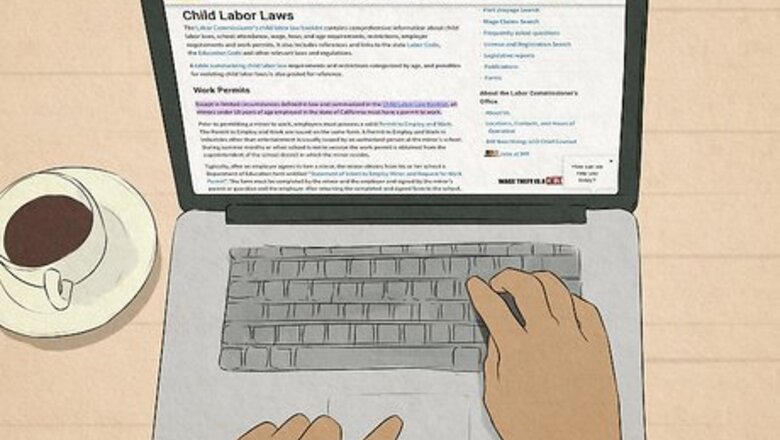
views
Looking At Your Options
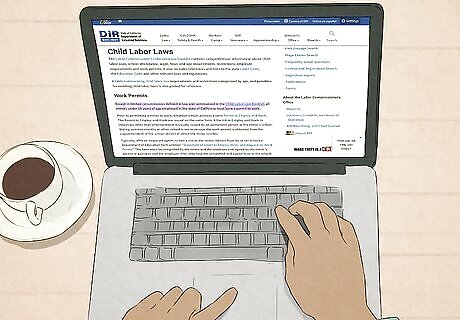
Pay attention to age regulations. Before you start looking for work, you need to make sure you are eligible to work. There are some federal and state regulations that say you must be a certain age to work, and others that restrict teens from certain types of jobs. Find out any rules in your state that would keep you from working. You may need to talk to your school to see if you need paperwork from them, as well. Individual companies may also have restrictions about age, so you want to pay attention to those requirements as you are searching and looking at applications. You don’t want to spend the time it takes to file an application if they only hire people who are 18 years or older.

Use your connections. One of the most important, and often hardest, aspects of getting a job is learning to ask for it. Talk to everyone you know and tell them you are job searching. Ask them if they know of any good opportunities at the moment. It is great to ask adults like your parents, aunts and uncles, teachers, guidance counselors, and church leaders. These connections can be especially helpful in getting informal jobs like babysitting and lawn care. There is also always the possibility that you know people who work in places that would hire teenagers for assistant type work, filing, or cleaning positions. Once you have made the initial ask, and especially if the person tells you they will check into something, make sure to follow up with them later on to see if they found out anything.
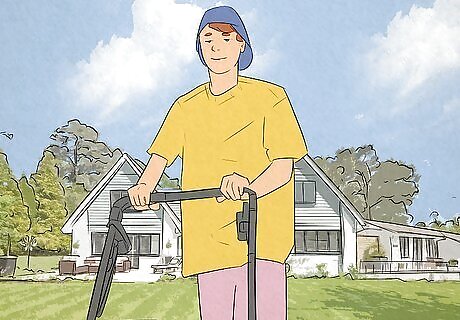
Make a job for yourself. A great option for teens is to go the more entrepreneurial route, rather than seeking jobs within a company structure. Going the self-employment route gives you greater flexibility in regards to how often and how many hours you work. When you are using your connections, pointing out your interest in self-employment is always a good plan. The types of jobs you have available in this area include babysitting (which people always need), lawn care (such as mowing, gardening, or even simple landscaping), dog walking, or car washing. You could even offer pickup and delivery services (if you can legally drive) for things like groceries, dry cleaning, or other goods. People have all kinds of things that they need done, and as a teen, you may be able to offer them lower prices than if they hired an adult. Don’t limit your thinking about what opportunities might be available.
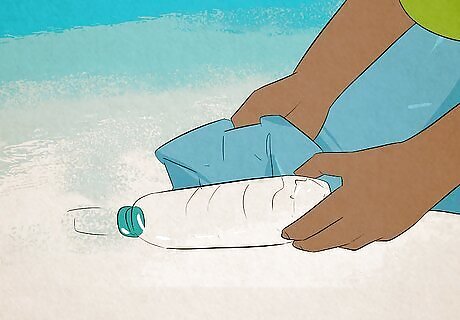
Don't be afraid to volunteer. Volunteering for a while can be a great way to start building relevant work skills that make you more marketable. If you have the time to put into volunteering somewhere on a consistent and long-term basis, you may be able to build enough rapport with them that you can move into a paid position. If the business or organization you are volunteering with starts looking to hire, you will be a better candidate than many others because you already know their environment and goals well.
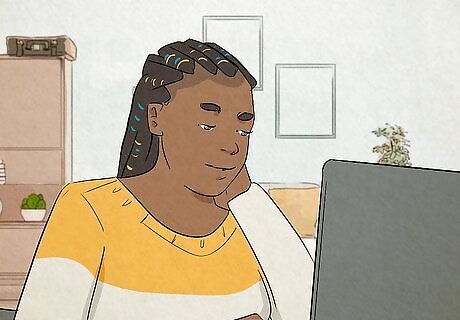
Pursue online opportunities. In today’s marketplace, online and telecommute jobs are plentiful, and many are viable options for teens. If you have a skill for writing, there are many online platforms that allow you do freelance work. As long as you can perform the writing well, your age would not restrict you. If you have any website design or other graphic design experience, this can be another good option. In many cases, you will still need to meet specific qualification standards. Some freelance jobs will require you to have a degree, some experience, or be of adult age. When looking at potential opportunities, be careful to look for these requirements. Consider learning to buy and sell things online, such as comics, antiques, or other merchandise. You may need your parents to help set up an account for something like eBay if there is a restriction, but then you would be able to do the work of selling. Online working options could be great when you are still in school, because they rarely require you to work specific scheduled hours. You would have the freedom to work around your schedule, and do extra work anytime you have days off from school.
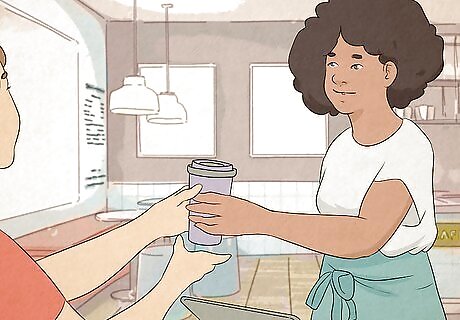
Be open to what is available. Although jobs may be limited by your age, many great opportunities still exist. Many restaurants, retail stores, or agricultural and labor jobs allow younger employees. Don't say no to these types of jobs, even if they would not be your favorite choice. At 16, this probably won't be your lifelong job, so be willing to do something that you may not love for a while to earn a little money and gain work experience.
Making Yourself Look Good
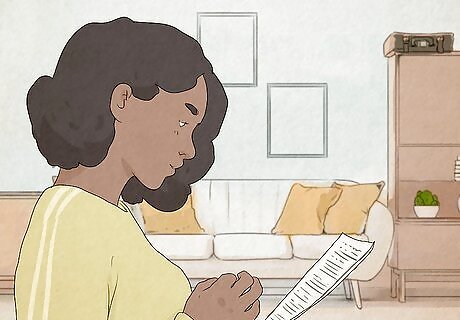
Prepare your paperwork. To get hired by most businesses or organizations, you will need a few pieces of paperwork and identification. The first thing you may need is a driver’s license, but you may be able to substitute another form of photo ID like a passport if you don’t yet have a driver’s license. Know your social security number, and possibly have the social security card itself for when you fill out applications and tax documents. Lastly, it is possible you’ll need a specific work permit of some kind, possibly signed by your parents, to show that you are legally allowed to work. It is in your best interest to gather all of these before officially filling out applications or tax papers so you’ll have them ready if you do need them.
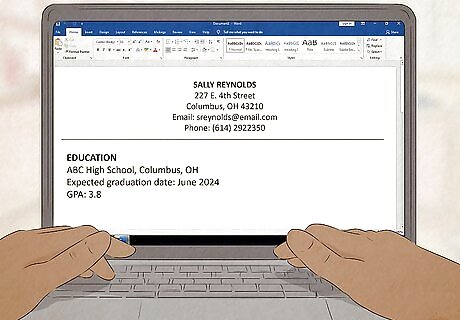
Write up a resume. It may not be entirely necessary to have a resume for many of the jobs you’ll be looking for, but there is still a benefit to doing it. You may not even have any work experience to speak of, but you can craft a resume that highlights what you do have to offer. It can be worthwhile to list academic accomplishments which show that you are a hard worker. But a resume can help you highlight some soft skills like how energetic you are, show you are reliable, and let you talk yourself up, in general. If you have volunteer experience, you can list that and explain what ways it has helped you become a better worker. Maybe you were a top seller in a recent fundraiser, which shows you have sales capability. Maybe you won top prize in a science fair, which shows you know how to work with complex mechanisms. Hobbies can also be valid ways to show your skills, such as being in choir giving you teamwork skills and showing you can be punctual and committed on a long-term basis. A resume is all about making you look like the best candidate, so craft it to fit the jobs you are looking at. Find ways to prove that you have the skills the hiring personnel are looking for. The other benefit of a resume when you’re only 16 is that many other people your age will not have written a resume, so it gives you a bit of an edge over them.
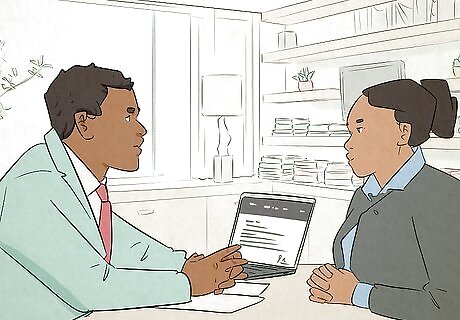
Prepare for your interview. Even many adults struggle with the interviewing process, so it is always good to think about it and practice ahead of time. Ask your parents or other adults what types of questions they were asked. If you know other teenagers who work at places you are applying, ask them what type of interview they went through. Compile a list of some basic questions that you are likely to be asked and have some good answers ready for those questions. Sample questions might be: What can you offer this company? What makes you qualified for this job? What experience do you have that makes you a good candidate for the job? It is also helpful to just keep a positive attitude going into an interview. Tell yourself that you are ready and that you are a great choice for the job. It’s hard to convince someone else if you aren’t convinced yet. Don't stress about it if you make a small slip - they will expect you to be nervous. Be prepared with a question to ask the interviewers at the end of the interview, as this will show how motivated you are.
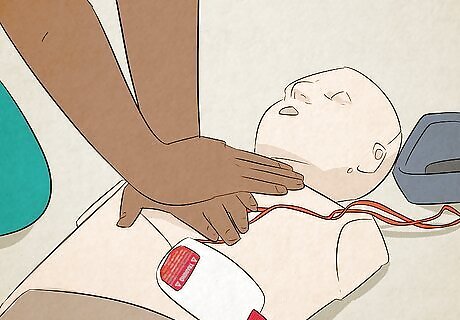
Take a training course. Something that will make you a better job candidate is having something extra to offer, outside of job specific skills. Going through a training course for CPR, getting certification for basic first aid, or attending a customer service seminar will give you an edge over other young applicants. For babysitting, CPR and first aid would be a great help. Parents will likely feel more at ease knowing you have some training for emergency situations. These would also both be great for jobs like being a lifeguard at the community pool.




















Comments
0 comment